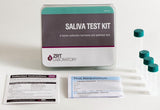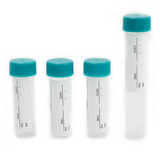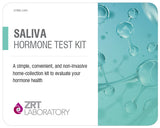Female Saliva Hormone Test (Complete Profile)
Measure six essential hormones with a simple at-home saliva kit. Get clear insight into cycle health, fertility, mood, energy, and overall hormonal balance.
What’s Measured
- Estrone (E1) – estrogen linked to bone and cardiovascular health
- Estradiol (E2) – primary estrogen for cycle regulation and fertility
- Estriol (E3) – estrogen important in pregnancy and overall estrogenic activity
- Testosterone (T) – supports libido, muscle tone, and vitality
- DHEAS (DS) – adrenal precursor to estrogen/testosterone; reflects resilience
- Progesterone (Pg) – balances estrogen, supports luteal phase and pregnancy
- How and when to Collect your saliva samples: Saliva Testing Instructions
- Click to see >> Sample Saliva Test Result Report
Key Benefits
- Comprehensive profile: Six hormones for a complete snapshot of balance
- Actionable results: Graphs, numeric values, and PhD Hormone Specialist comments
- Fast turnaround: Results in 3–5 working days after the lab receives your sample
- Non-invasive: Saliva collection at home; no needles, no clinic visit
- Track over time: Monitor changes across cycles, perimenopause, or therapy
- Transparent pricing: Lab fee included; you cover sample postage
- 12-month validity: Use the kit when it suits you
- For adults and teens: Appropriate under clinical guidance
Who It’s For
Women with any of the following: irregular periods, PMS or perimenopause symptoms, low libido, fatigue, mood changes, sleep issues, weight change, or fertility concerns.
How It Works
- Order your kit.
- Collect saliva following the step-by-step guide.
- Post your sample to the lab.
- Receive your report with expert interpretation in 3–5 working days.
What You Receive
- Graphical and numerical hormone levels
- Specialist commentary and next-step recommendations
- Optional re-testing guidance to track progress
FAQ
What does this test measure?
Estrone, estradiol, estriol, progesterone, testosterone, and DHEAS.
Why saliva instead of blood?
Saliva reflects bioavailable (active) hormones and enables timed, at-home collection.
How long do results take?
3–5 working days after the lab receives your sample.
Will a specialist review my report?
Yes. A PhD Hormone Specialist adds comments and recommendations.
Is the kit suitable if I’m on HRT or contraception?
Yes. It helps assess therapy impact. Follow your clinician’s timing advice.
Are there hidden fees?
No. Lab analysis is included. You only pay postage to the lab.
Can I use the kit later?
Yes. The kit is valid for 12 months from purchase.
Who should consider testing?
Women with irregular cycles, fertility issues, low energy, mood or sleep problems, hot flushes, or low libido.
How to Use










